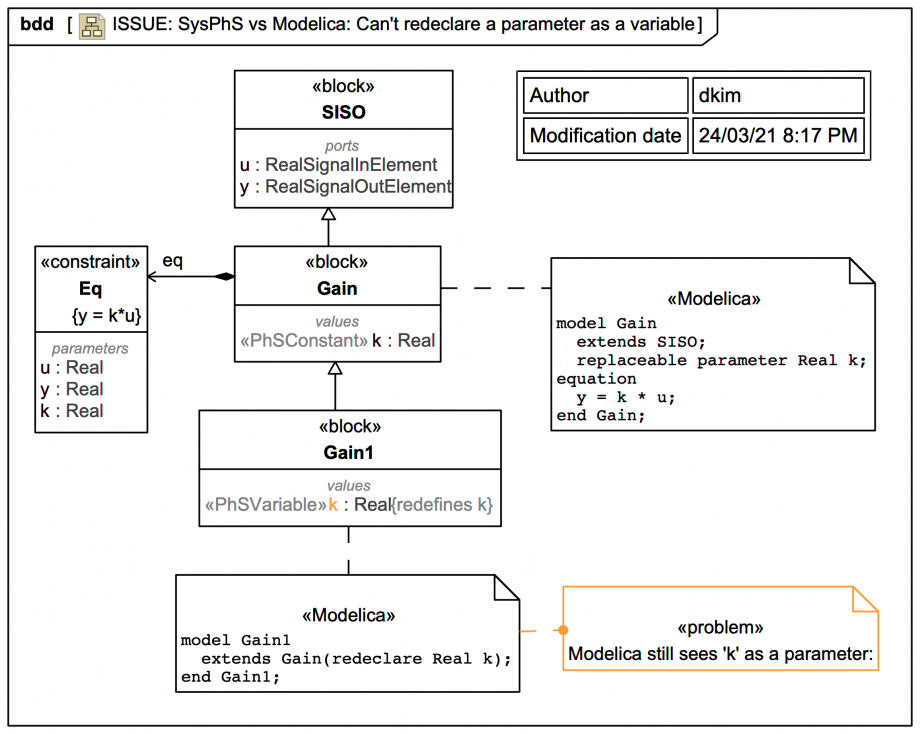This page identifies a possible issue, inconsistency, concern, error, or bug!
One of the ways Webel IT Australia helps promote tools, technologies, and languages is by donating a lot of time identifying, tracking, and reporting potential issues, in order to help vendors and developers improve the tools and technologies. In some cases, we also offer workarounds and advice for users. All issues tracked on our public site are offered most constructively and with sincerest gratitude to the tool vendors and technology developers.
DISCLAIMER: Vendors do not officially endorse issue analysis by Webel IT Australia.
Firstly, you may be asking why on earth one would wish to do this. It's an attempt to workaround the fact that SysPhS-1.1 does not support Modelica's 'initial equation'; there are circumstances where if you have a variable instead of a parameter you can still initialise it at startup using other parameters elsewhere.
Consider this base:
model Gain
extends SISO;
replaceable parameter Real k;
equation
y = k * u;
end Gain;
k as a variable (not a parameter) within the context of the extending Gain1, but it doesn't:
model Gain1
extends Gain(redeclare Real k);
end Gain1;


